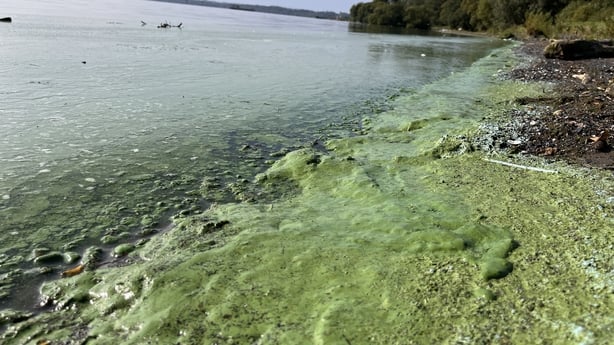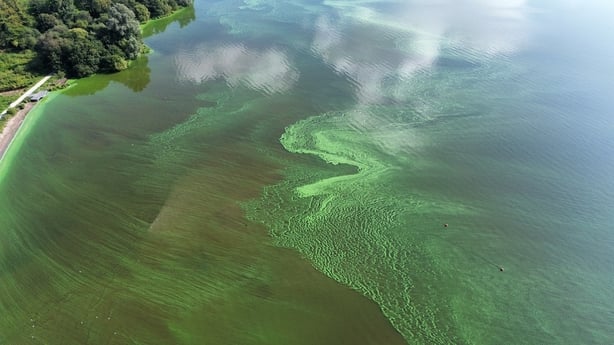A UK environmental watchdog has delivered a hard-hitting report on Stormont's failure to protect water quality in Northern Ireland.
The Office of Environmental Protection (OEP) said plans to protect rivers are woolly and not properly resourced.
One target for improving water quality has already been missed and if more coherent plans are not adopted, the OEP said, another one will be missed in 2027 by "a large margin".
The OEP said if things do not change, it will become ever more expensive to fix the problem and it runs the risk that the damage may become irreversible.

In a statement, the OEP said: "Not only has there been little overall positive change in the status of water bodies in recent years, there has also been some apparent regression.
"We see a significant need to strengthen how Northern Ireland's environmental law on water is applied to increase its effectiveness."
The OEP took on the role of ensuring government compliance with environmental law in the UK after Brexit.
Two of the three catchments under scrutiny in its report are cross-border ones and include 55 rivers which run in both jurisdictions.
Major contributory factors to poor water quality in Northern Ireland include an excess of nutrients linked to agriculture and issues with wastewater treatment.
The Executive was meant to update its plans three years ago but has so far failed to do so.
The OEP characterises the Executive's efforts as generalised and high level, lacking the specific, time bound targets required for delivery.

It said Northern Ireland's water quality issues have been brought into sharp focus by the toxic algae blooms which are once more affecting Lough Neagh.
For the second year in a row, the lough has been blighted by a toxic sludge which can impact human and animal health.
The blooms are being driven by a number of factors, including excessive nutrients in the six main rivers which drain a large portion of Northern Ireland's land mass into it.
40% of Northern Ireland's drinking water is taken from the lough. NI Water said its treatment processes mean it is safe to drink.
At the weekend, people gathered on the shores of Lough Neagh to protest at Stormont inaction on water quality.
They criticised politicians and intensive farming saying they had allowed the current situation to develop.
Amongst the speakers was Tony McCormack from the Glenavy Conservation and Angling Club, who works to protect several of the rivers which flow into Lough Neagh.
He told protestors most politicians had "failed" in their duty to ensure proper regulation of water quality.

Mr McCormack said "They do not seem to show the political will nor the desire to move forward on this issue.
"Change is very slow in coming and we seem to be stuck in this hiatus of don't rock the boat, just let things keep going the way they've been going, everything is fine here," he added.
"Unfortunately, we're now reaping the whirlwind of their inaction," Mr McCormack said.
Stormont's Agriculture Minister Andrew Muir has announced a strategy to begin addressing the problems in Lough Neagh and secured some funding to progress it.
However, he has also said there will be no quick fix.
In a statement, he welcomed the report by the Office of Environmental Protection and said he took its findings "very seriously"
He acknowledged that in the past the correct balance had not been struck when it came to protecting water quality.
"Lough Neagh has become a wakeup call for water quality issues and this report is a timely reminder of the work required, not only across government, but the public and private sectors," Mr Muir said.
The Agriculture and Environment department has three months to respond to the 16 recommendations in the OEP report.
We need your consent to load this rte-player contentWe use rte-player to manage extra content that can set cookies on your device and collect data about your activity. Please review their details and accept them to load the content.Manage Preferences







